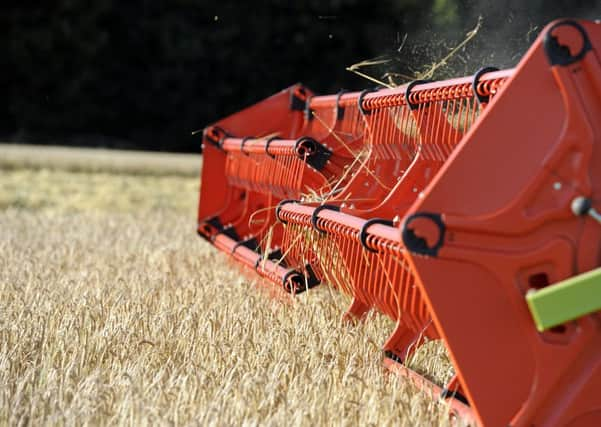High quality but a smaller crop


The NFU said that as a net importer of food, the UK must start to produce more itself and called on government to deliver on its promises to improve long-neglected agricultural research and knowledge exchange to help weather-proof British crops.
“A reverse in the decline of spend for agricultural R&D is crucial if we are to increase production and impact less on the environment in years to come, particularly if extreme weather events become more frequent,” said NFU combinable crops board chairman Andrew Watts.
Advertisement
Hide AdAdvertisement
Hide Ad“Innovation and technology are vital in keeping crops healthy and resilient, yet this technology has been under a sustained and unwarranted attack recently, and the impacts could be grave for the industry.
“The last thing we want is for legislators to regulate the UK and EU out of arable production by undermining access to pesticides and products that will be vital to protect the crops of the future.
The NFU’s 2013 Harvest Survey revealed that the overall wheat yield is up 16 per cent on 2012, at 7.8 tonnes per hectare, and slightly up on the five-year average of 7.7 tonnes per hectare. However, total production looks set to be much lower than the 13 million tonnes produced last year.
Mr Watts said as a result we should expect to see the UK importing above-normal volumes of wheat for the second year running, but that the high quality meant much more of what has been harvested would be of value to the food industry this year.
Advertisement
Hide AdAdvertisement
Hide Ad“Farmers worked really hard to get this year’s crop up and running, but with planting down by 19 per cent, I’m not surprised overall wheat production is down,” he said.
“Many arable farmers are still working under the shadow of 2012’s appalling weather and the knock-on impact this has had. For most, the problem is now in the office; working to balance the books, cover production costs and, looking ahead to next year, I’m hoping we can move on to a more positive outlook. It is important to remember that we have seen some very good yields coming from what wheat was left after the winter this year. If, as we are seeing, the quality is excellent, that will be some comfort for producers. I would hope it would mean British companies using a higher proportion of British wheat in their products, which would be good news for consumers who are looking more and more for British produce.
“Farmers know this industry is a long game. I think we are all relieved to draw a line under this season. Let’s hope we can make a good start planting this autumn and, weather willing, see a productive harvest next year.”